MOURNING DIARY
ALSO BY ROLAND BARTHES
A Barthes Reader
Camera Lucida
Critical Essays
The Eiffel Tower and Other Mythologies
Elements of Semiology
Empire of Signs
The Fashion System
The Grain of the Voice
Image-Music-Text
Incidents
The Language of Fashion
A Lovers Discourse
Michelet
Mythologies
The Neutral
New Critical Essays
On Racine
The Pleasure of the Text
The Responsibility of Forms
Roland Barthes by Roland Barthes
The Rustle of Language
Sade / Fourier / Loyola
The Semiotic Challenge
S/Z
Writing Degree Zero
MOURNING DIARY
October 26, 1977September 15, 1979
ROLAND BARTHES
Text established and annotated by Nathalie Lger
Translated from the French by Richard Howard
 Hill and Wang
Hill and Wang
A division of Farrar, Straus and Giroux
New York
Hill and Wang
A division of Farrar, Straus and Giroux
18 West 18th Street, New York 10011
Copyright 2009 by ditions du Seuil/Imec
Foreword and annotations copyright 2010 by Nathalie Lger
Translation and afterword copyright 2010 by Richard Howard
All rights reserved
Distributed in Canada by D&M Publishers, Inc.
Printed in the United States of America
Originally published in French in 2009 by Seuil, France, as Journal de Deuil
Published in the United States by Hill and Wang
First American edition, 2010
A portion of this book first appeared, in slightly different form, in The New Yorker.
Unless noted otherwise, the pictures featured in this edition come from the authors private collection. The pictures of Roland Barthes in his mothers arms as an infant and as a child, the picture of his mother in Biscarosse, and the picture of the family house in Urt were originally published in Roland Barthes by Roland Barthes. The index cards come from the original manuscript of Mourning Diary. They are reproduced here with the kind authorization of Michel Salzedo, Roland Barthess stepbrother and literary executor.
Library of Congress Cataloging-in-Publication Data
Barthes, Roland.
[Journal de deuil. English]
Mourning diary : October 26 1977September 15 1979 / Roland Barthes ; text established and annotated by Nathalie Lger ; translated by Richard Howard.1st ed.
p. cm.
Includes bibliographical references.
ISBN: 978-0-8090-6233-1 (alk. paper)
1. Barthes, RolandDiaries. 2. LinguistsFranceDiaries. 3. CriticsFranceDiaries. 4. Bereavement. I. Lger, Natalie. II. Howard, Richard. III. Title.
P85.B33A3 2010
410.92dc22
[B]
2010005775
Designed by Jonathan D. Lippincott
www.fsgbooks.com
1 2 3 4 5 6 7 8 9 10
CONTENTS
EDITORS NOTE
In his diary, Roland Barthes refers to a wide range of works. The references that may seem cryptic to the reader are explained in a footnote. For the sake of chronological consistency, we have listed the French edition of the works Barthes alludes to, copies of some of which could be found in his library at the time when he was writing his diary of mourning. We have referred to an English edition in parentheses whenever one is available.
FOREWORD
The day after his mothers death, October 25, 1977, Roland Barthes began a mourning diary. He wrote in ink, sometimes in pencil, on slips of paper (regular typing-paper cut into quarters) of which he kept a constant supply on his desk.
While writing this diary, Barthes prepared his Collge de France course on The Neutral (FebruaryJune 1978), wrote the text of his lecture For a Long Time I Would Go to Bed Early (December 1978), published many articles in various journals and magazines, wrote Camera Lucida between April and June 1979, drafted several pages for his project Vita Nova during the summer of 1979, and prepared his double course at the Collge de France on La Prparation du roman (December 1978February 1980). At the root of each of these major works, all explicitly placed under the sign of his mothers death, are the notes of Mourning Diary.
These notes were for the most part written in Paris and in Urt, near Bayonne, where Barthes occasionally stayed with his brother, Michel, and the latters wife, Rachel. He made several trips during this period, notably to Morocco, which Barthes, regularly invited there to teach, enjoyed visiting. Preserved at IMEC, Mourning Diary is presented here in its entirety, note by note. We have corrected the chronological order of the notes as it had evidently been distorted. The format of the quartered pages required an always concise wording, but some notes are written on both sides of the paper, and occasionally the text continues on the front of several notes. The initials provided by the author designate his intimates and have been preserved as written. The brackets are the authors; a few footnotes are provided to explain the context or clarify an allusion.
Henriette Binger was born in 1893. At twenty she married Louis Barthes; a mother at twenty-two, she was a war widow at twenty-three. She died at the age of eighty-four.
The reader is presented not with a book completed by its author, but the hypothesis of a book desired by him, which contributes to the elaboration of his uvre and, as such, illuminates it.
Natalie Lger
This edition could not have been completed without the kind assistance of Bernard Comment and ric Marty.
MOURNING DIARY
October 26, 1977June 21, 1978
October 26, 1977
First wedding night.
But first mourning night?
October 27
You have never known a Womans body!
I have known the body of my mother, sick and then dying.
October 27
Every morning, around 6:30, in the darkness outside, the metallic racket of the garbage cans.
She would say with relief: the night is finally over (she suffered during the night, alone, a cruel business).
As soon as someone dies, frenzied construction of the future (shifting furniture, etc.): futuromania.
October 27
Who knows? Maybe something valuable in these notes?
October 27
SS: Ill take care of you, Ill prescribe some calm.
RH: Youve been depressed for six months because you knew. Bereavement, depression, work, etc.But said discreetly, as always.
Irritation. No, bereavement (depression) is different from sickness. What should I be cured of? To find what condition, what life? If someone is to be born, that person will not be blank, but a moral being, a subject of valuenot of integration.
October 27
Immortality. Ive never understood that strange, Pyrrhonic position; I just dont know.
October 27
Everyone guessesI feel thisthe degree of a bereavements intensity. But its impossible (meaningless, contradictory signs) to measure how much someone is afflicted.
October 27
Never again, never again!
And yet theres a contradiction: never again isnt eternal, since you yourself will die one day.



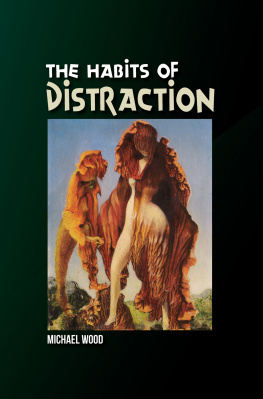

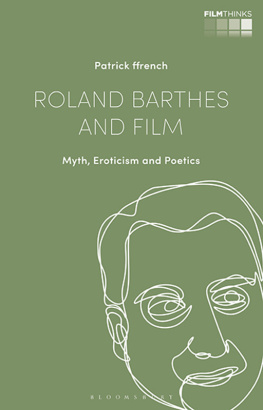
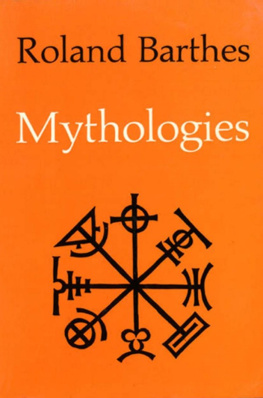


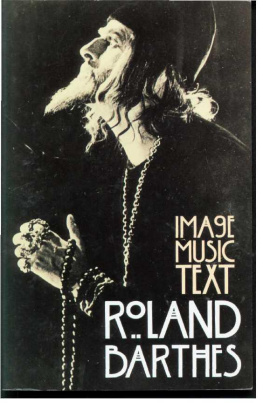
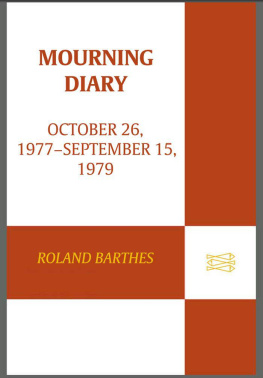
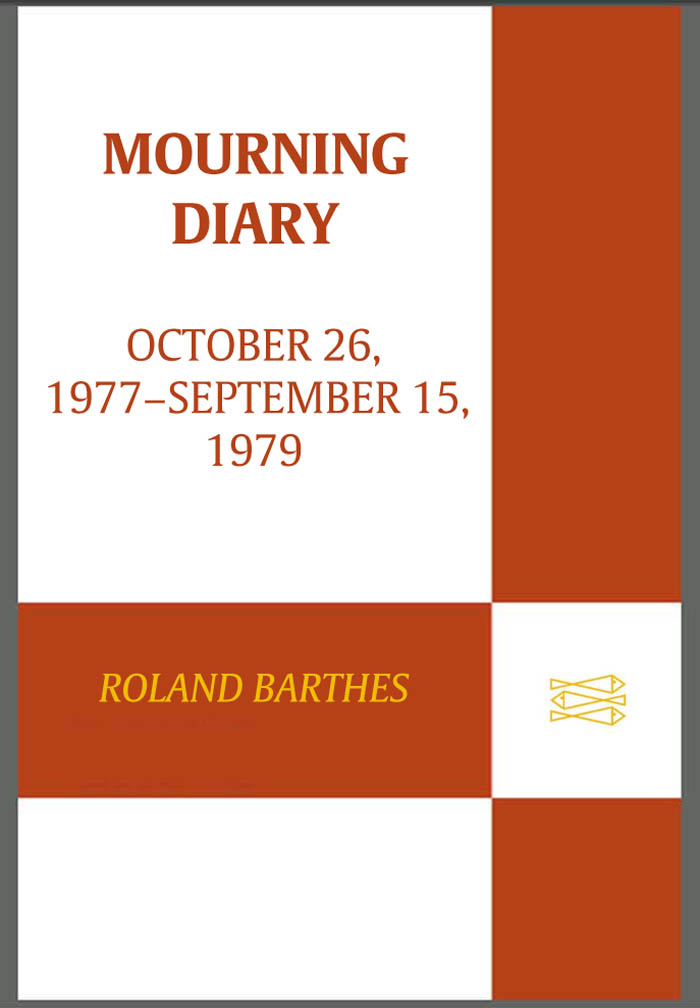
 Hill and Wang
Hill and Wang